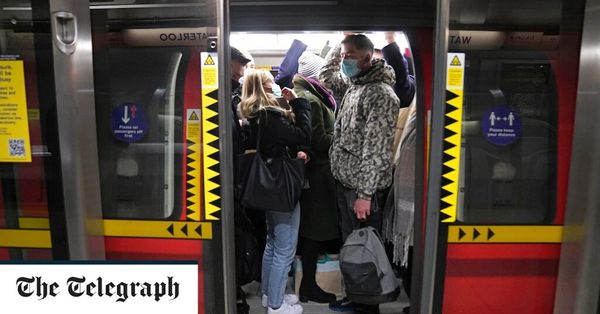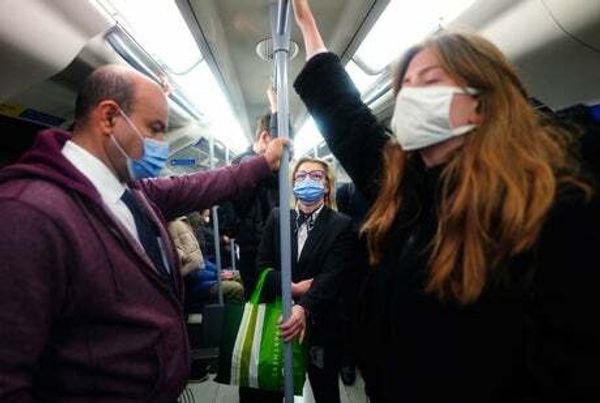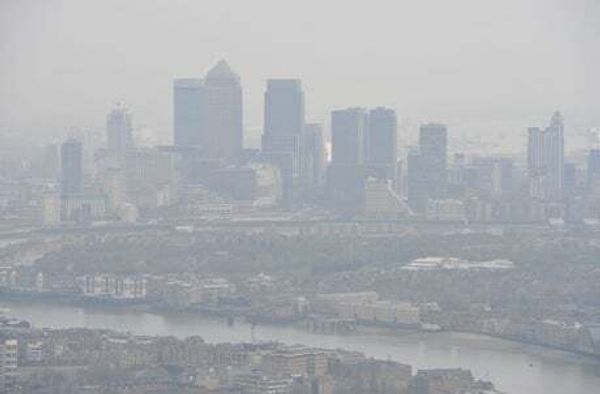
Sadiq Khan has vowed to keep fares “as cheap as possible”
(Picture: PA Wire)Sadiq Khan has vowed to keep fares “as cheap as possible” to prevent driving more Londoners back to their cars when he sets the annual increase for bus and Tube travel.
The Mayor is due to decide over the next few weeks by how much to increase the cost of Transport for London fares, after being told by the Government that these must, “as a minimum”, match the 3.8 per cent annual rise being imposed on national rail services from March.
Mr Khan is thought to be considering an overall increase closer to five per cent due to the collapse in fares income at Transport for London caused by the pandemic.
An annual increase of this magnitude has not been seen for a decade, since Boris Johnson hiked fares by almost six per cent in 2012.
Mr Khan told the Evening Standard he was unhappy the Government had put “a gun to TfL’s head” and was enforcing an above-inflation hike as a condition of its ongoing bail-outs.
He promised to retain the Hopper ticket – which allows unlimited journeys on the bus and Croydon tram within an hour, for £1.55 at present – and said he also wanted to minimise any increase paid by customers using Pay-As-You-Go on Oyster and Contactless cards.
Mr Khan said: “Unfortunately TfL has a gun to its head from the Government, who are making us do stuff which isn’t in the best interests of TfL or London.
“We are still going to keep the Hopper fare. What we are working on in TfL is making sure we can keep Pay-As-You-Go as cheap as possible, and also the daily [price] cap as cheap as possible.
“We have got to realise the way to encourage people to leave their cars at home is to make it as easy as possible to walk and cycle. We want to keep public transport accessible, safe and affordable.”
Mr Khan froze TfL single fares in his first four years as mayor but increased them by an average of 2.6 per cent in March last year.
Critics said the fares freeze deprived TfL of £640m in income but Mr Khan said it saved the average Londoner £200.
TfL’s current bailout has been extended until February 4. Earlier this month, the Standard revealed Transport Secretary Grant Shapps had dropped the requirement for TfL fares to rise by 4.8 per cent – but said any shortfall that resulted from a more modest increase would not be covered by the Government.
TfL needs to generate an additional £500m a year – prompting Mr Khan to last month announce an extra £20 a year for the next three years on council tax bills, premium Tube fares throughout the day for Heathrow passengers and retaining the restriction on free travel for over 60s before 9am.
He also plans to scrap the Travelcard that many rail commuters use for Tube and bus journeys in London.
Mr Khan, who has warned road congestion was near pre-pandemic levels, admitted the challenge of encouraging public transport use while increasing fares was a “big problem”.
On Tuesday, he unveiled plans to impose a “clean air charge” or widen the Ulez to the Greater London boundary as two possible options to cut car use by 27 per cent by the end of the decade.
He said: “That is one of the reasons why we are saying to the Government: ‘Don’t micromanage how TfL runs.’
“One of the things that Parliament decided in 1999 was to devolve to London the running of transport.
“In the last five years, we have managed for the first time in TfL’s history to reduce operating costs on a like-for-like basis… while freezing fares and bringing in the Hopper, and have more people using buses, Tubes, the tram, the Overground than would otherwise be the case.
“We have tried not to [increase fares] because we do know, if you can keep fares low it encourages more people to use public transport, which actually brings in more revenues. It makes economic sense to keep fares low.
“The good news is because we froze fares over five years, the compound benefit of that is the base we are starting from is far lower.”
TfL’s latest data shows the number of journeys made by public transport or walked or cycled fell from 63.2 per cent in 2019 to 58.3 per cent in 2020 – making the Mayor’s target of 80 per cent by 2041 even less likely to be achieved.










